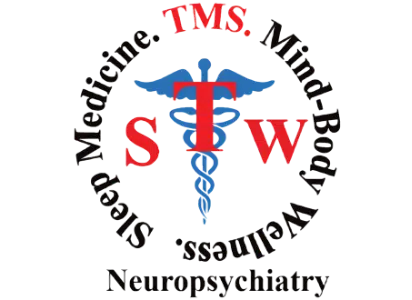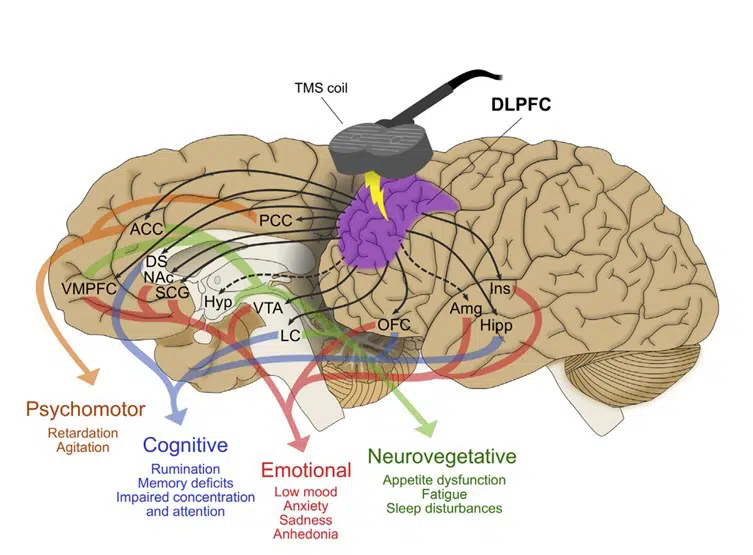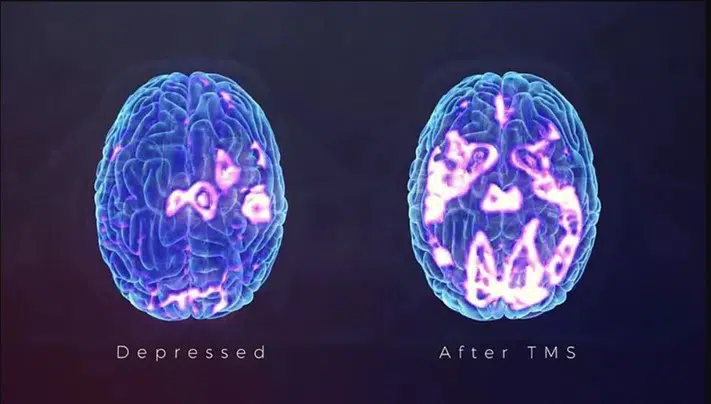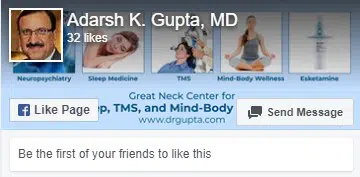TMS Resources
- What is TMS?
- How does TMS Work?
- Is TMS for you?
- Is TMS covered by insurance?
TMS Blogs
What is TMS (transcranial magnetic stimulation) Therapy?
Transcranial Magnetic Stimulation (TMS) therapy is a technological breakthrough in the treatment of Major Depression and it was cleared for use by the FDA in October 2008. TMS is a powerfully effective and safe treatment for Major Depression.
I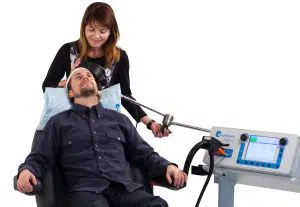
Repeated stimulation of this part of the brain has proven to produce an antidepressant effect on people suffering from depression. TMS is also known as rTMS (repetitive transcranial magnetic stimulation) because more than one magnetic pulse is delivered to the brain during a treatment session. It is given in an office setting without anesthesia, treatments last about 19 minutes and are typically given 5 days a week for four to six weeks. Side effects are minimal and usually only involve some discomfort at the site of treatment during the first week. Patients are able to work, go to school, or continue any of their daily activities.
How Does TMS Work?
How Does TMS Work?
Through a treatment coil, the TMS Therapy system generates highly concentrated, magnetic fields which are rapidly switched on and off. These magnetic fields do not directly affect the whole brain; they only reach a few centimeters into the brain, directly beneath the treatment coil.
TMS (or transcranial magnetic stimulation) refers to a medical treatment which is delivered by a device that generates changing magnetic fields. There are many devices which can be used by clinicians. At present, in general, the devices are positioned over the area of the brain which has been targeted by the clinician. For depression, this area is the prefrontal cortex of the brain. These magnetic fields can create electrical activity in the nerve cells. Biological effects of TMS involves complex mechanisms leading to changes in blood flow and metabolism at stimulation site, alterations of monoamine concentrations and receptors modulation, induction of neurogenesis (BDNF upregulation), enhanced neuroplasticity and increase in grey matter and hippocampal volume. TMS stimulation effects not only the targeted area, the prefrontal cortex, but also the connected areas of the brain, the cingulate, amygdala, hypothalamus, and thalamus.
NOTES,
Talk more about anxiety, FDA Approved for Migraine
